A lot goes into building a home and there are many issues that are hard to spot by the untrained eye. Having an expert third party look over your house provides an objective view of the home and could potentially catch any issues. Building inspections happen at various stages of the build, both because certain issues are easier to catch at certain times, and because it ensures defects are solved sooner rather than later.
In today’s article, we’re looking at building stage inspections, including:
- What they’re for and why they’re important
- What the various stages are
- Tips for finding the best building inspector for you
- Advice on some of the building inspection companies with the best reviews and ratings.
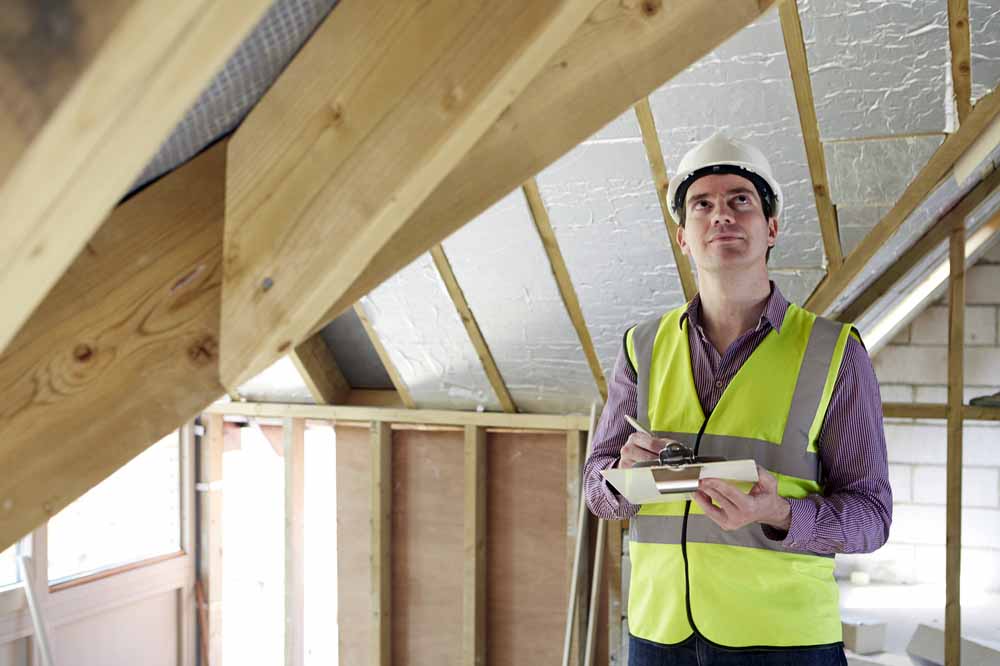
What are building stage inspections?
Building inspections are a means of having a third party (building inspectors) check the progress of your house at various stages. A building certifier acts as an independent expert who ensures both the quality and safety of your house during the various stages of construction. Building inspectors will make sure your building meets any relevant Australian standards while keeping designs and engineering plans in mind.
A building inspector DOES NOT ensure your contract is being met, only that the work is up to safety and meets the National Construction Code and Building Code of Australia. For example, a building inspector will make sure the tiling in your bathroom is acceptable, but won’t ensure they’re the type of tiles you paid for.
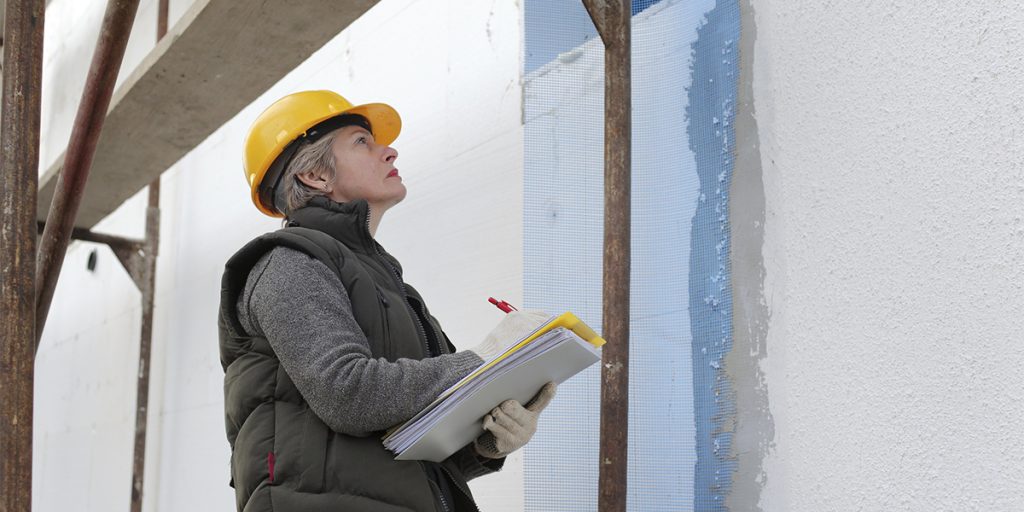
Are building stage inspections necessary?
We highly recommend having an experienced and skilled third party conduct building stage inspections. Not only is it a legal requirement, but it also helps ensure your builder is constructing a house that meets safety standards. Not all issues are readily apparent, especially to those building their first house, so it helps to have someone who knows what they’re looking for.
A good building inspector will find both minor and major structural defects, and issues, and provide solutions on how they can be fixed. Getting these things sorted is a lot easier while the builder is still working on your house than after completion.
A building inspection can provide you peace of mind or help discover any issues your builder will need to fix. Building disputes will be easier to sort with evidence from a third party in your favour.
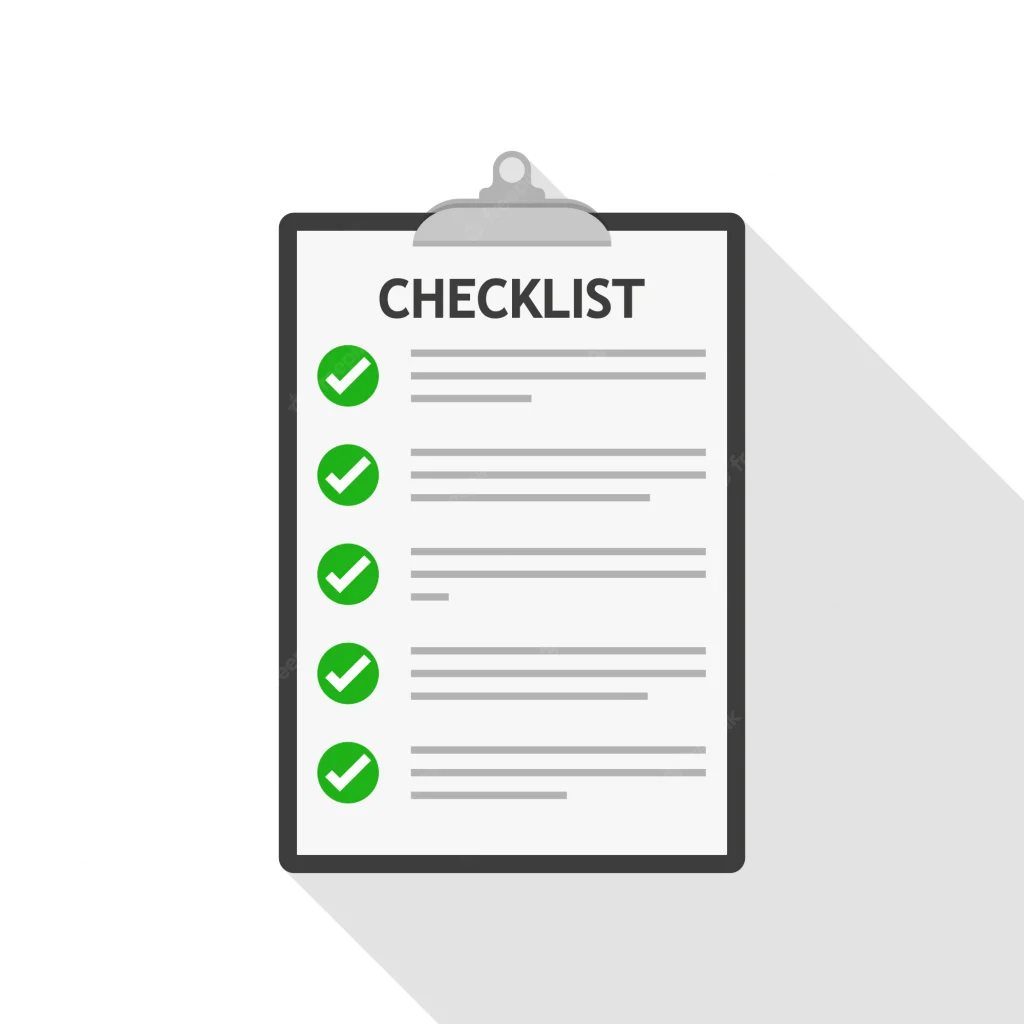
What are the different building stage inspections I need to be aware of?
A house is built in stages and it only makes sense that inspections happen at certain times. It’s a lot easier to examine the frame of the house before the walls are put up than after, for example. It’s also a lot easier to fix certain issues at particular times in the build.
Homeowners should expect inspections will happen in the following stages:
Foundation stage inspections
A slab stage inspection is important as this is literally the foundation of your house. Before any concrete is poured, footings and foundations need to be checked to make sure they meet Australian standards. Once the concrete has been poured, it’ll need to checked to ensure it is up to standard.
- Concrete meets the floor plan specifications
- Concrete is both even and level.
- Any termite protection (barrier) has been installed correctly
- Any cracks, signs of poor compacting, or other issues concerning the foundation material.

Frame stage inspection
This happens once the roof and wall frames have been fully completed, but before internal wall linings are installed. Windows and door frames will be in place by this stage. Your inspector will search for any structural defects with the frame itself.
- Make sure the frame is straight and level.
- Ensure each aspect of the frame is secure
- Everything applies with Australian Standards and Building Codes
- Any defects or potential issues that need to be addressed by the builder.
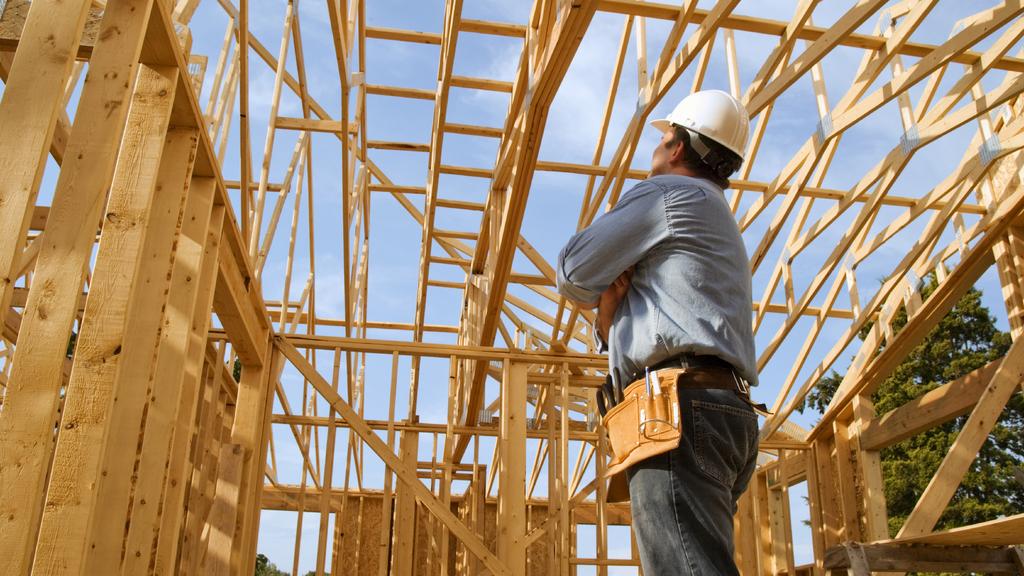
Lock-up/Waterproofing stage inspections
This is when the building process will really start feeling like it’s in the home stretch, as your home will literally be able to be locked up.
Just some of what will be checked include:
- External walls and their cladding (including brick, and weatherboards)
- Make sure the house is watertight and safe
- Everything including the roof, windows and doors is installed correctly.

Importance of Waterproofing
Water seems pretty harmless, but next to fire, it is actually the most destructive element to a house. It’s essential your home is waterproof against weather elements and features within the house, like plumbing and swimming pools. Moisture can severely limit the lifespan of your building material, resulting in rot, mould, water damage, corrosion in metal and decay.

Pre-painting stage inspections
Paint and tiling hide the signs of potential defects, so inspections need to take place before painting happens. You’ll reach this stage once you install services such as plumbing, electrical, internal linings and heating, but before you start plastering. This is your last chance to check the walls and roof frames before the plastering starts.
- Smoke alarms
- Safety Glass
- Vermin Proofing
- Safety Switches
- Shower bases
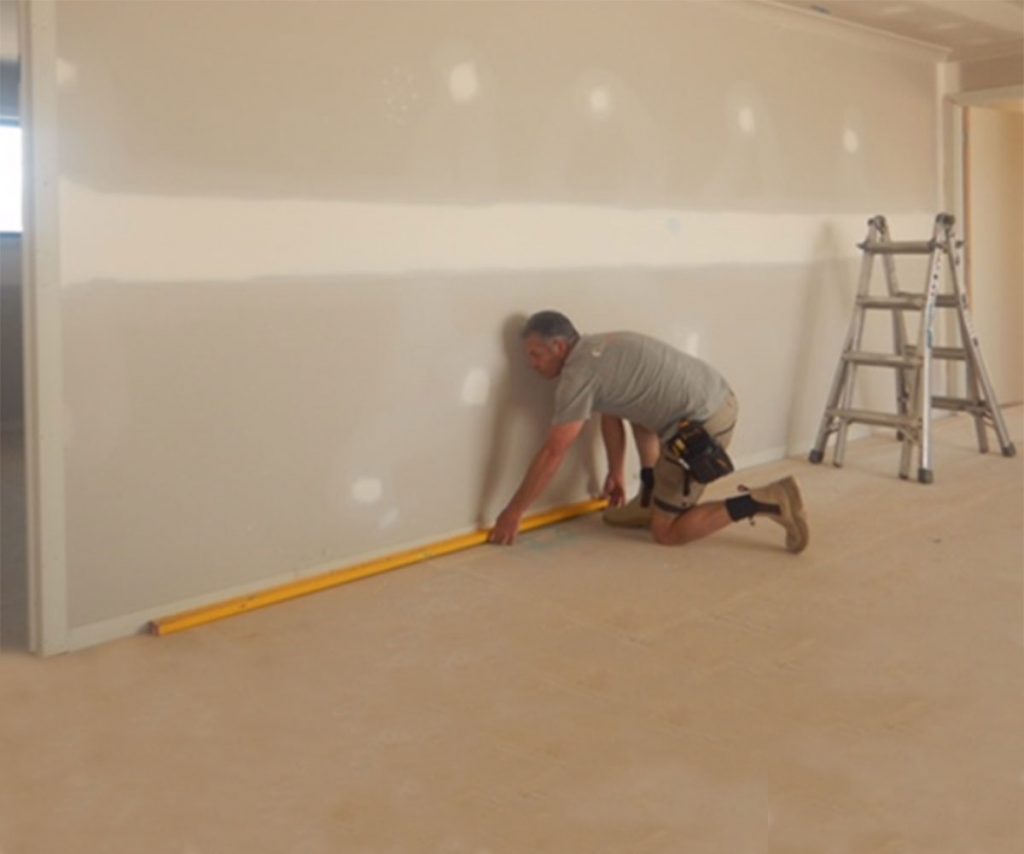
Building handover/practical completion inspection
The big moment is finally here. You’ve got a house and you’re going to get the keys. The handover inspection is a final, thorough lookover to ensure your builder has delivers a quality product and find any last minute fixes that need to be sorted.
Some of the key issues that will be looked at include:
- Has the home been completed
- Is there anything the builder needs to finish off, or has not done
- Are there any significant issues the builder needs to address?
It’s not uncommon for there to be a few issues that need fixing. Don’t panic if there are some minor fix-ups on the report. It doesn’t mean your home is a dud, but having these defects down in writing means your builder will have to get on it.
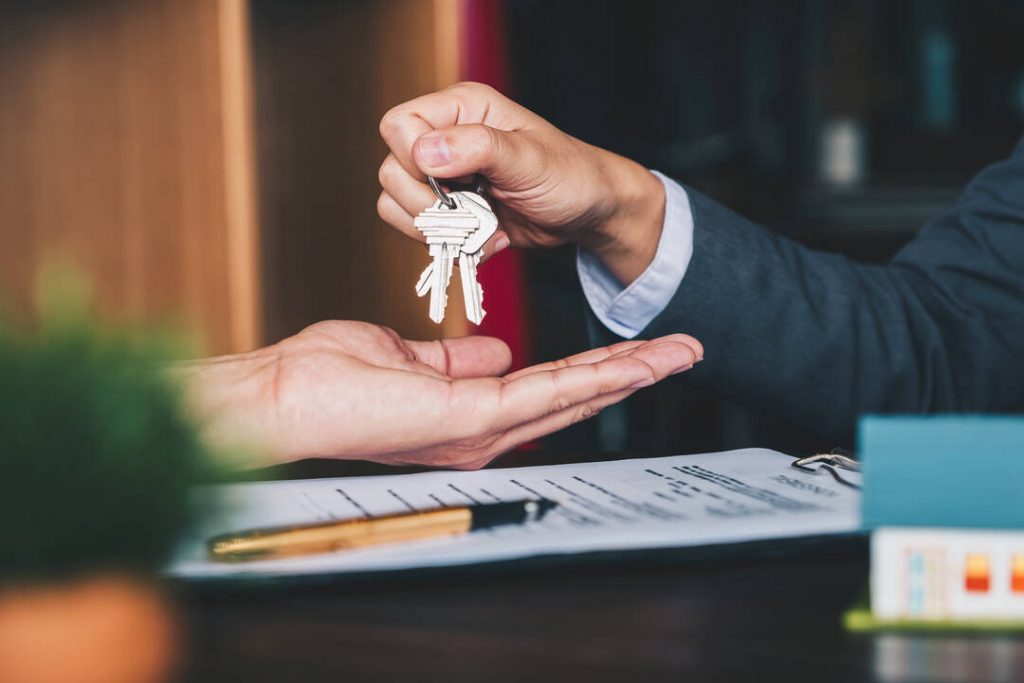
Warranty inspections
Nothing dampens the excitement of finally moving into your new home quite like finding defects down the line. You need to book a warranty inspection 11 months after your building handover inspection. It’s like a second handover inspection, in which your approver will inspect the same things and compare whether there have been any
- Structural defects within 6 years and 3 months of completion
- non-structural defective work within 12 months.
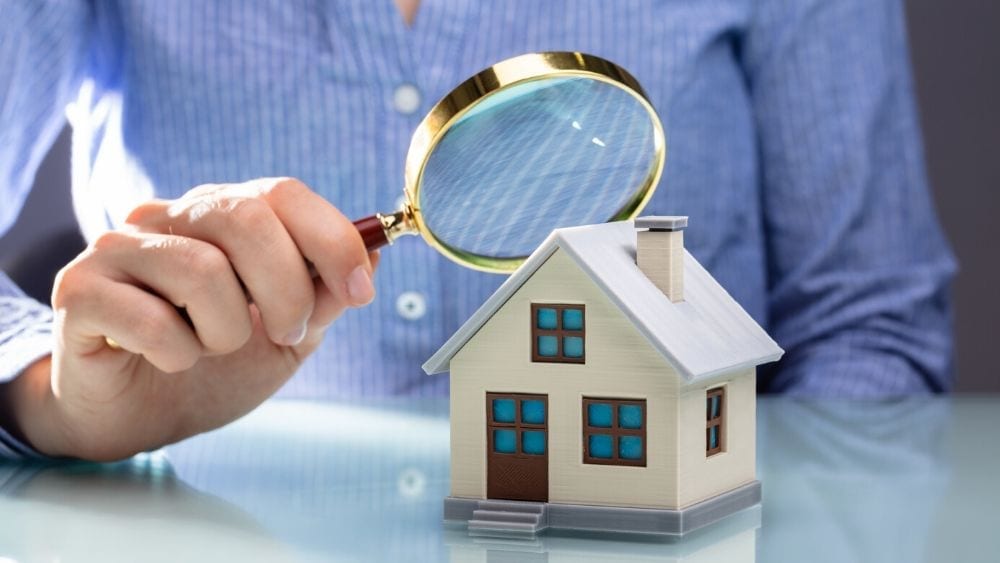
How much do building stage inspections cost in Brisbane?
Below are rough figures for how much inspections are likely to cost in Brisbane. Some companies may charge more or less.
Foundation/ Concrete Slab Pour: Between $400-500
Frame stage inspection: Between $400-520
Lockup-stage inspection: Between $400-500
Fixing Stage: Between $400-500
Handover Stage: Between $460-600
Some companies will offer package pricing which could save you some money.

Our tips to help you find a building stage inspection company in Brisbane
Make sure they have the qualifications
It’s important to make sure you’re hiring a licensed building inspector. It gives you confidence they’ll find any defects, it adds legitimacy when you present this to the builder.

Ask questions to ensure they’re offering a thorough inspection
The very reason you’re hiring a building inspector is you want someone careful and thorough. Have a discussion with them about what they’ll be checking and the signs they’ll be looking for. Details are a good sign, whereas vague answers should be a cause for concern.

Will they allow you onsite during an inspection?
It’s not a necessity that you attend building inspections as the information will be provided to you in a report, but it’s nice to have the option. If a building inspector is very against the idea of you attending an inspection, it might indicate they’re concerned about the amount of effort they’re putting in and how you’ll perceive it.
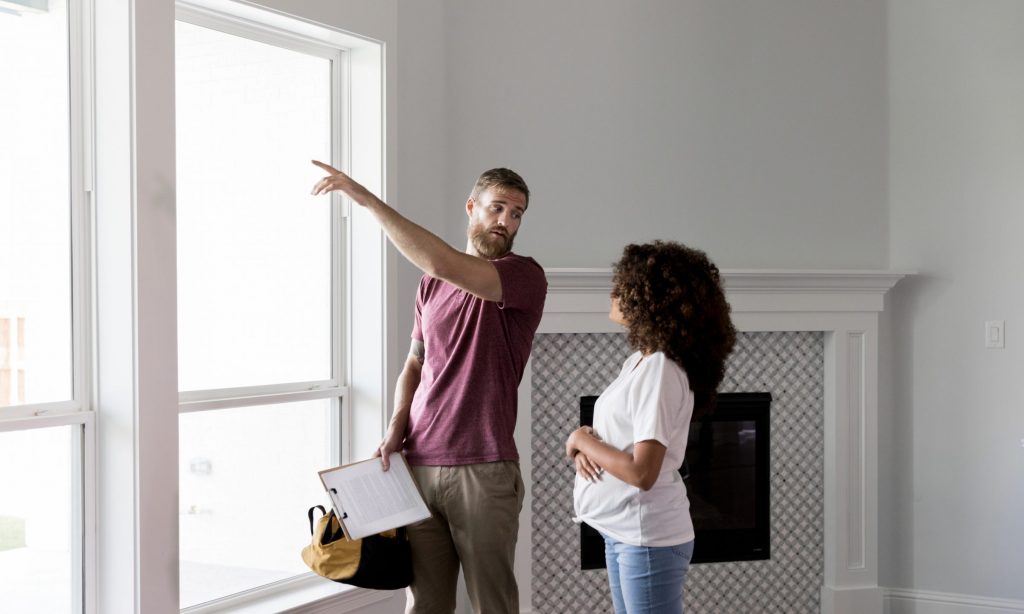
Check their work history
Make sure your building inspector has experience inspecting during a build. Some inspectors specialise in checking pre-existing houses before purchase rather than during each building stage.

How much are they charging?
Find out how much you’re likely to be paying before you agree to hire them. Variables are okay if the contractor is open about them.

Red flags to look out for before hiring a building stage inspector
Lack of qualifications
There’s nothing wrong with asking for someone’s qualifications, especially when you’re giving them your hard-earned money. If they’re reluctant or easily offended by the idea, ask yourself why. It might be that they’re not as qualified as they’re making out.
Wants a large down payment
A small deposit isn’t unusual, but if a contractor wants most or all of their money upfront, it’s time to start getting suspicious.
The contractor insists on cash payments
Only accepting cash is often a sign that someone is trying to pay fewer taxes, but that isn’t the biggest or most immediate concern for a customer. Cash payments often won’t come with receipts or even proof you paid the money as you’d get from a bank transfer. This could really come back to bite you if there are problems down the line.
Which companies provide the most reputable and highly rated building stage inspection services in Brisbane?
ABIS (Australian Building Inspections Services)
A1 Building Inspections
All Suburbs Building Inspections and Reports (ASBIRS)
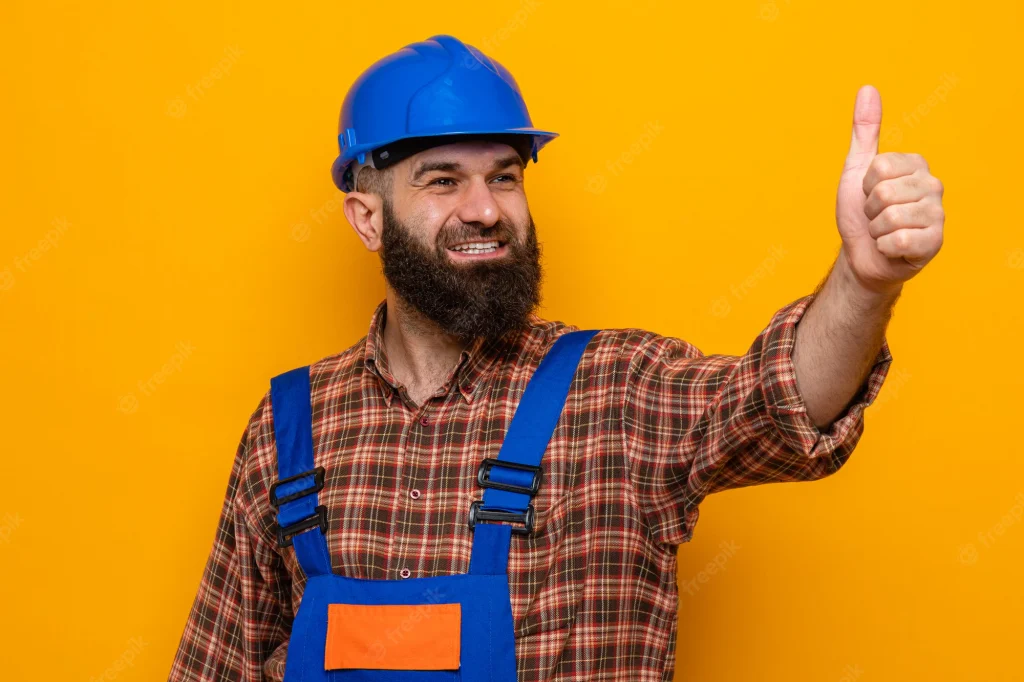


0 Comments